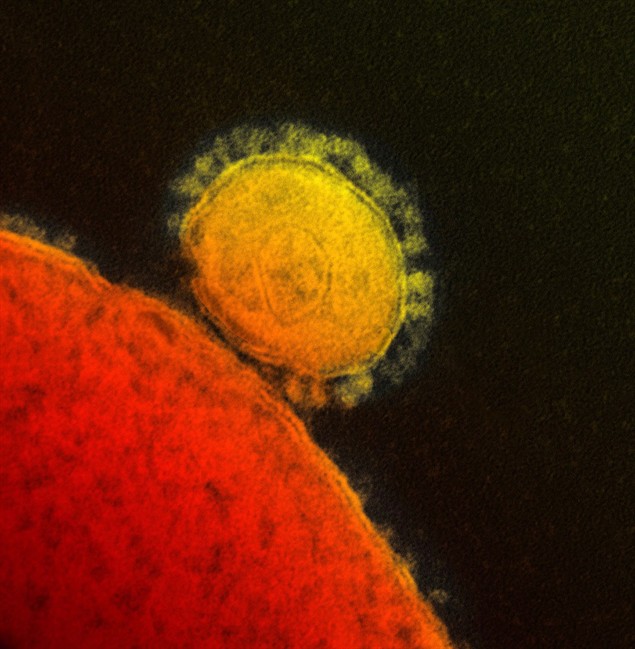LONDON – A detailed look at two cases of a deadly new respiratory virus called MERS suggests people who have the disease should be isolated for at least 12 days to avoid spreading it, doctors reported Wednesday.

The new germ, a respiratory infection, was first seen in the Middle East and so far has sickened more than 40 people worldwide, killing about half of them.
In the report published online in the journal Lancet, French scientists said the first patient visited Dubai. He is thought to have caught MERS there before passing it onto the second patient, who had no travel history and with whom he shared a room for three days.
Health officials have previously noted MERS can be spread among people if they are in close contact and clusters of the illness have been spotted in countries including Britain, Tunisia and Saudi Arabia. Experts aren’t sure how humans are catching the virus but think it may originate in animals like bats or camels.
In a speech on Monday in Geneva, the World Health Organization’s Director-General, Dr. Margaret Chan, said her greatest health concern is MERS. She called the ongoing outbreaks “alarm bells” and said the virus “is a threat to the entire world.”
French doctors estimated the disease’s incubation period to be from 9 to 12 days for the second case, longer than the 7 to 10 days previously reported by others. They said longer quarantines might be necessary to stop the virus’ spread and noted people with underlying medical conditions could be at higher risk.
The scientists wrote that if the virus evolves further, it could become more dangerous. With further mutations, they said MERS “might become increasingly transmissible” and must be continuously assessed.
Earlier this week, French officials said the first patient died. The second remains in critical condition.
—-
Online:
http://download.thelancet.com/flatcontentassets/pdfs/S01406736136 09824.pdf

Comments